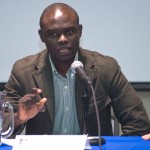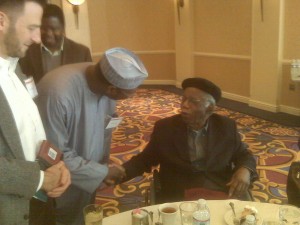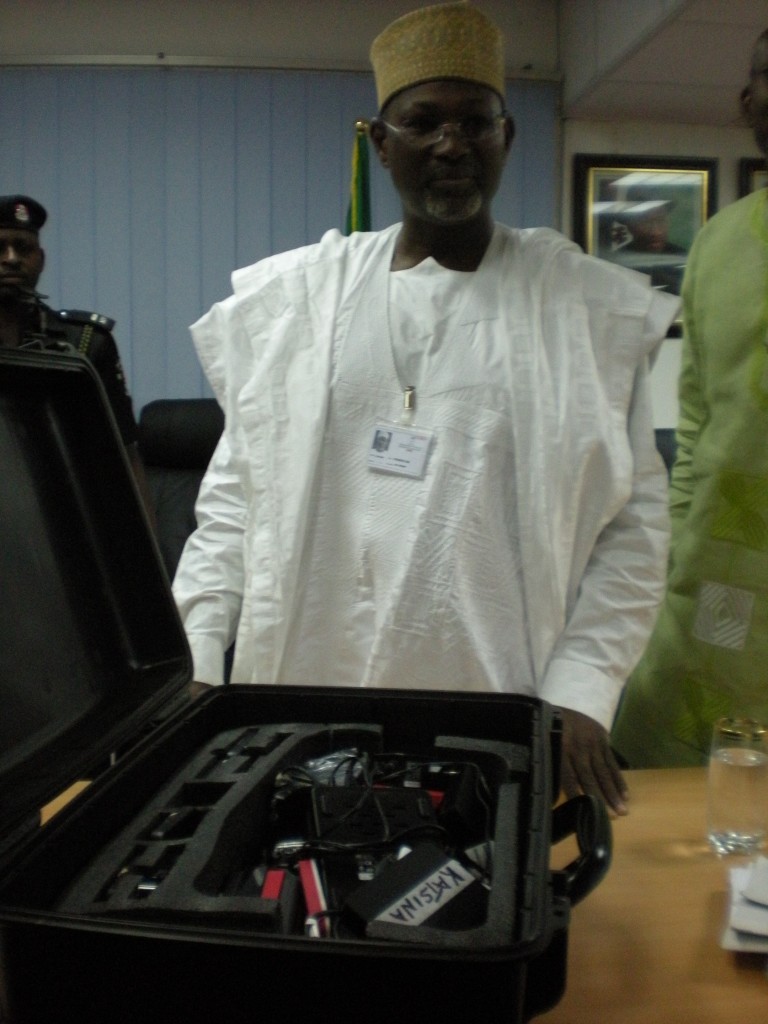A new report published by the Center for Global Development argues that a new American law designed to prevent mining profits from fueling violence in the Democratic Republic Congo has instead contributed insecurity in key regions and hurt local economies.
The Dodd-Frank Wall Street Reform and Consumer Protection Act contains novel provisions aimed at increasing transparency regarding corporate and commercial activities in foreign countries. When the bill was signed into law in July 2010, Global Witness told IRIN News that armed groups such as the FDLR (Forces Démocratiques de Liberation du Rwanda), the Congolese national army, and the members from the CNDP (Congrès National pour la Défense du Peuple) “make millions of dollars per year by controlling mine sites and illegally taxing the minerals trade.” By compelling companies to change their sourcing practices and publicly disclose information about payments they make for mining rights, civil society groups hope that the “conflict minerals” law, as it is known, will curb violence in this volatile region of Africa.
The law contains three mechanisms designed to deprive militant groups of money used to bankroll conflict:
- Section 1504 requires companies listed on US stock markets to disclose how much they pay to foreign governments for access to minerals, oil and gas.
- Section 1502 requires companies to report to the Securities and Exchange Commission if they bought conflict minerals from the DRC or its neighbors.
- Companies must report on their websites whether they source the principal “conflict minerals” such as columbite, tantalite (coltan), cassiterite, gold, wolframite, or their derivatives from the DRC or its neighbors.
The language was included in the Obama administration’s much broader financial reform package. When President Obama signed the bill into law, he highlighted provisions in Dodd-Frank to create a new consumer protection agency, increase the information available to borrowers about student loan rates, and provide corporate shareholders with information about executive pay. (He did not mention the conflict minerals provision, though it was considered an important innovation.)
New Critiques of the Ban
Laura Seay, an Assistant Professor of Political Science at Morehouse College who publishes an insightful blog, Texas in Africa,wrote the report for CGD. She agrees that the law has improved transparency in international markets and reduced the money previously diverted to funding the DRC’s conflicts. But the law has already had significant unintended effects – even though key provisions have yet to formally go into effect. For starters, she argues that Section 1502 has contributed to massive unemployment.  President Joseph Kabila (pictured left) instituted a wide-scale ban on mining in two eastern provinces, leading to militarized take-overs and additional violence. Seay argues that the ban would never have been instituted had 1504 and 1502 not passed in the US.
President Joseph Kabila (pictured left) instituted a wide-scale ban on mining in two eastern provinces, leading to militarized take-overs and additional violence. Seay argues that the ban would never have been instituted had 1504 and 1502 not passed in the US.
In addition, Seay presents evidence that the Dodd-Frank bill has reduced the overall export of minerals from the DRC. This effectively makes the ban on Congolese “conflict minerals” an outright boycott thus hurting the lives of many Congolese, including artisans and small businesses. Finally, she claims that the effective ban has not helped improve overall security of Congolese. These provocative claims come at a fragile moment for the DRC, where tensions from December’s profoundly flawed elections are still simmering.
The report’s analysis also promotes self-reflection about the role of American and European-based civil society groups in addressing Africa’s challenges. Sections 1502 and 1504 of Dodd-Frank probably wouldn’t exist without a broad solidarity campaign against conflict minerals. For example, the Enough Project said “The recent passage of provisions on conflict minerals from eastern Congo in the Dodd-Frank Wall Street Reform act has brought unprecedented attention to the linkages between trade in minerals crucial to electronics and other industries and the ongoing conflict in DRC. These provisions have been welcomed by the State Department, the Congolese government, a diverse coalition of NGOs, and by leading companies.” Those of you in Washington will remember that the campaign was effectively launched via a huge public event at American University.
Exploring Alternatives
The report offers a number of recommendations, including the restoration of provisions (removed from the final version of Section 1502) to provide supplemental assistance to help mining towns cope with adverse effects of Dodd-Frank. It also proposes security sector reform and direct protection of civilians, rather than targeting conflict minerals.
One component of US security sector reform would likely include International Military Education Training. If so, several recent investigations should give us pause. For example the General Accountability Office recently concluded that “human rights training was generally not identified as a priority in the IMET country training” among the 29 plans it examined. Moreover there was very little follow-up with IMET alumni to assess the impact of their training. At the very least, this gives Congress some reasons to remain vigilant in monitoring any such assistance. (As I will detail in forthcoming posts – the record appears to be especially problematic in Africa.)
Opening up Broader Debates
The CGD report re-opens the lively debate with the legislation’s supporters. Global Witness for example has a detailed rebuttal to “common misconceptions” about the conflict mineral provisions. It acknowledges short term adverse impacts on local artisans for example, and argues – accurately in my view – that because the law requires disclosure but does not stipulate penalties for sourcing conflict minerals, it does not amount to a de facto embargo.
In a broader sense, the CGD report’s conclusions about the effects of Dodd-Frank could fuel two broader, worthwhile discussions. First, the implications for corporate social responsibility will also be closely followed by companies such as Apple, which is facing new criticism after revelations in the New York Times (January 25, 2012, “In China, Human Costs Are Built Into an iPad”) that putting together your iPhone involves under-age labor in factories with 7-day work weeks and serious safety problems – including two recent explosions and hundreds of people becoming ill from working with chemicals. That’s a supply chain I certainly want to know about, and such incidents appeal to the same consumer conscience that conflict minerals did.
Second, if the conflict minerals ban does amount to a boycott, then that returns us (appropriately) to discussions about when and how such international instruments can effect democratic and social change. International boycotts helped bring down the apartheid regime in South Africa for reasons we well know, but a decade of sanctions on Iraq had little effect other than to destroy the middle class and stimulate massive widespread Arab anger towards the West (as Joy Gordon documents in her excellent new book, Invisible War from Harvard University Press.)
I, for one, welcome both of those discussions.




